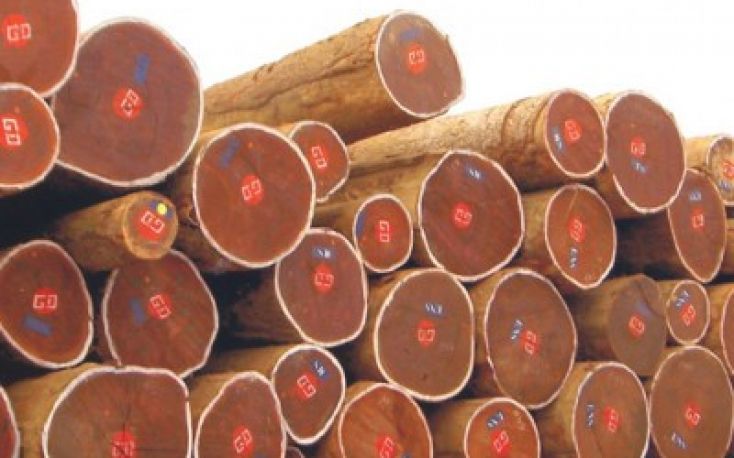The Netherlands has traditionally played an important role as a driver of tropical timber demand in the EU.
In addition to relatively large timber consumption for water protection works, and a long-term preference for Asian meranti for window frames, the Netherlands acts as a hub for distribution of tropical wood products to other parts of the EU. The Dutch government and private sector have also been influential in development of environmental procurement practices throughout the continent.
 This influence looks set to continue as the Netherlands has been one of the few bright spots for tropical wood imports in Europe in the last two years. At the same time, Dutch traders and agencies, notably the Dutch sustainable trade initiative IDH which is the main backer of the European Sustainable Tropical Timber Coalition (STTC), continues to support far-reaching policies designed to ensure that importers and buyers in the EU give preference to FSC and PEFC certified products.
This influence looks set to continue as the Netherlands has been one of the few bright spots for tropical wood imports in Europe in the last two years. At the same time, Dutch traders and agencies, notably the Dutch sustainable trade initiative IDH which is the main backer of the European Sustainable Tropical Timber Coalition (STTC), continues to support far-reaching policies designed to ensure that importers and buyers in the EU give preference to FSC and PEFC certified products.
For direct imports, the Netherlands is the fourth largest importer of tropical wood products in the EU, after the UK, Belgium, and France (Chart 1). In 2018, the Netherlands accounted for 12.8% of all EU imports of wood-based products in Chapters 44 (Wood) and 94 (Furniture) of the internationally harmonised system (HS) of product codes, up from 12.3% the previous year.
Total imports of tropical wood products into the Netherlands from tropical countries were 336,000 tonnes in 2018, 9% more than in 2017. Import growth continued in the first half of 2019, with imports of 190,000 tonnes, another 9% gain on the same period last year.
Much of the gain in Netherlands tropical wood imports in 2018 was in sawnwood, for which imports increased 29% to 140,000 tonnes (Chart 2).
However, this growth stalled in the first six months of 2019, with imports of 67,000 tonnes 15% less  than the same period in 2018.
than the same period in 2018.
Growth in Dutch imports of wood furniture from the tropics has been more consistent, rising 10% in 2018 to 65,000 tonnes and reaching 38,000 tonnes in the first 6 months of 2019, 6% more than the same period last year.
Dutch imports of joinery products from the tropics have been quite volatile, falling 14% to 32,000 tonnes in 2018 but rebounding by over 120% to 24,000 tonnes in the first half of 2019. This volatility is all due to trade in glulam (mainly window scantlings from Malaysia), which declined very sharply in 2018 but staged a significant recovery this year. Imports of doors from tropical countries into the Netherlands, mainly from Indonesia, have been increasing more consistently.
Dutch imports of mouldings and decking products from tropical countries – mainly Indonesia - fell 9% to 26,000 tonnes in 2018 but increased by over 50% to 19,000 tonnes in the first half of 2019. In contrast, plywood imports increased 6% to 34,000 tonnes in 2018 and were stable, at 17,000 tonnes, in the first half of 2019. Imports of plywood from Indonesia are rising, offset by a decline in imports from Gabon.
Indonesia overtook Malaysia to become the largest single supplier of tropical timber products to the Netherlands, with quantity just exceeding 100,000 tonnes in 2018, 4% more than the previous year. Imports from Indonesia in the first half of 2019 were level at 55,000 tonnes. Imports from Malaysia increased 5% to 74,000 tonnes in 2018, but were down 15%, at 35,000 tonnes, in the first half of this year.
 Imports from Brazil increased sharply, by 45%, to 50,000 tonnes in 2018, and were up another 35% to 30,000 tonnes in the first half of 2018. Imports from Viet Nam and India, in both cases mainly of wood furniture, are also rising. Imports of sawn wood from Cameroon, volatile into other EU countries in recent years, were recovering ground in the Netherlands in both 2018 and 2019. Nigeria recently emerged as a significant supplier of charcoal to the Netherlands (Chart 3).
Imports from Brazil increased sharply, by 45%, to 50,000 tonnes in 2018, and were up another 35% to 30,000 tonnes in the first half of 2018. Imports from Viet Nam and India, in both cases mainly of wood furniture, are also rising. Imports of sawn wood from Cameroon, volatile into other EU countries in recent years, were recovering ground in the Netherlands in both 2018 and 2019. Nigeria recently emerged as a significant supplier of charcoal to the Netherlands (Chart 3).
Netherlands as a timber distribution hub
To some extent, the focus on direct imports underestimates the role of the Netherlands in overall EU trade for tropical wood products. If imports from other EU countries are included, total imports of tropical wood products into the Netherlands were 532,000 tonnes in 2018, a gain of 8% compared to 2017. Imports in the first half of 2019 were 272,000 tonnes, unchanged from the previous year (Chart 4). Much of the tropical wood entering the Netherlands from  other EU countries comprises logs and sawnwood sourced via Belgium and Germany and veneer sourced via Poland.
other EU countries comprises logs and sawnwood sourced via Belgium and Germany and veneer sourced via Poland.
The Netherlands also distributes large quantities of tropical wood products to other parts of the EU. In 2018, the Netherlands exported 92,000 tonnes of products known to contain tropical wood to other EU countries, mainly sawnwood, logs, and plywood with a smaller volume of decking, joinery and veneer. The leading EU destinations were Belgium, Germany, the Czech Republic, France, the UK, and Italy.






Leave a Reply